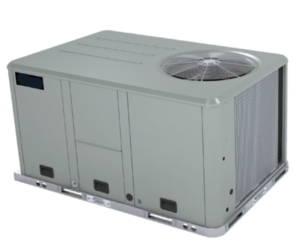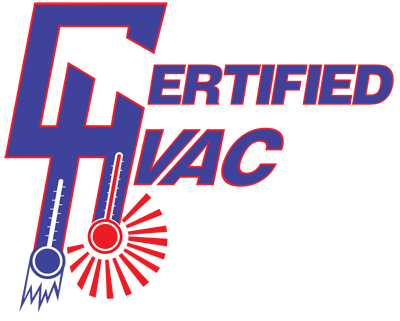Essential Service & Maintenance Plans for Facilities Managers
HVAC Facilities Management
As an HVAC Facilities Manager, you are a key player in maintaining the operational integrity of facilities. You ensure that HVAC systems are reliable, efficient, and safe, contributing significantly to the comfort and well-being of building occupants. Your role is dynamic, requiring a blend of technical knowledge, management skills, and strategic thinking. Your role is Facility Solutions.
As well, an HVAC professional plays a crucial role in facilities management by ensuring that heating, ventilation, and air conditioning systems are operating efficiently and effectively. Our expertise contributes to the overall performance of a facility in several ways:
- Maintenance and Repairs: Regular maintenance of HVAC systems is vital to prevent costly business disruptions. HVAC professionals schedule and perform necessary maintenance and repairs, which helps in maintaining the optimal performance of a facility’s climate control systems.
- Compliance and Safety: They ensure that all HVAC systems comply with health and safety regulations, which is essential for the well-being of occupants and the legal operation of the facility.
- Energy Efficiency: By managing and optimizing HVAC systems, professionals can significantly reduce energy consumption, leading to cost savings and a reduced environmental footprint. Advanced HVAC systems can be monitored and adjusted based on occupancy and weather conditions, potentially resulting in up to a 30% reduction in energy usage.
- Technological Advancements: Staying abreast of the latest technology and trends in the HVAC industry, such as the electrification of buildings and the use of environmentally friendly refrigerants, is another area where HVAC professionals contribute to facilities management. They can guide facility managers in upgrading systems to meet modern standards and sustainability goals.
- Operational Efficiency: Utilizing digital tools and software, HVAC professionals can streamline service operations, implement remote monitoring to preemptively identify issues, and provide online scheduling and payments for services. This enhances the overall efficiency of managing a facility’s HVAC needs.
WHY SHOULD FACILITY MANAGERS HAVE A COMMERCIAL HVAC SERVICE AND MAINTENANCE PLAN?
Your service and maintenance plan details the timing and procedures for maintaining your HVAC system. It encompasses a regular maintenance schedule, specifying the tasks to be performed.

YOU CAN EXPECT TASKS SUCH AS:
- Lubricating the moving parts.
- Cleaning the coils and elements.
- Cleaning the drains.
- Checking and replacing air filters.
- Checking belts for wear.
- Testing the safety controls.
- Analyzing the air delivery for proper airflow.
- Inspecting the ducts for potential leaks.
- Monitoring the refrigerant pressure.
- Checking for carbon monoxide poisoning.
- Confirming the calibration of the thermostat.
- Verifying the refrigerant charge.
HOW CAN A COMMERCIAL HVAC SERVICE AND MAINTENANCE PLAN HELP KEEP THE FACILITIES MANAGER ORGANIZED?
An HVAC service and maintenance plan is a critical tool for facilities managers, offering a structured approach to the upkeep of heating, ventilation, and air conditioning systems. Such plans typically encompass a schedule for regular maintenance, which can include tasks like lubricating moving parts, cleaning coils, and checking for leaks, thereby preventing minor issues from escalating into major disruptions. By adhering to a predetermined maintenance routine, facilities managers can avoid the pitfalls of reactive maintenance, which often leads to unexpected downtime and higher costs.
Moreover, a well-structured plan ensures that maintenance tasks are not overlooked, contributing to the longevity and efficiency of the HVAC system. This proactive strategy not only helps in maintaining optimal indoor air quality but also in managing energy consumption, leading to more predictable operating expenses. Additionally, having a service plan in place can streamline the process of repairs and replacements, as it often includes a predefined chain of events to follow when issues arise, ensuring that the facilities manager can address problems swiftly and effectively.
Ultimately, an HVAC service and maintenance plan serves as an organizational backbone for facilities managers, enabling them to maintain oversight and control over one of the most critical components of their building’s infrastructure.
WHAT ARE THE BENEFITS OF CREATING A QUARTERLY COMMERCIAL HVAC PREVENTATIVE MAINTENANCE SCHEDULE?
- Reduced Risk of Unexpected Breakdowns: Regular maintenance can identify and address potential issues before they escalate, preventing costly repairs and operational disruptions.
- Enhanced Energy Efficiency: A well-maintained HVAC system operates more efficiently, leading to lower energy consumption and utility costs.
- Extended Equipment Lifespan: Routine inspections and maintenance can extend the life of HVAC equipment, reducing the frequency and cost of replacements.
- Improved Air Quality: Clean coils and filters ensure better indoor air quality, contributing to a healthier environment for occupants.
- Consistent Comfort: Regular maintenance helps maintain consistent temperature and humidity levels, ensuring comfort for tenants and customers.
- Operational Cost Savings: Preventative maintenance can lead to decreased operating costs by avoiding unexpected repairs and reducing energy usage.
- Regulatory Compliance: Staying on top of maintenance helps ensure compliance with local and federal regulations regarding HVAC systems.
- Customer Satisfaction: A reliable HVAC system can improve tenant and customer satisfaction, potentially leading to increased business retention.
- Sustainability: Efficient systems contribute to sustainability goals by reducing carbon emissions and promoting environmental responsibility.
- Predictable Budgeting: With a set maintenance schedule, businesses can better predict and budget for HVAC-related expenses.
- Protect Your Warranty: It is likely that your HVAC system came with a warranty. If you are still in the warranty period, there is likely a requirement for regular maintenance since this is so important for the overall functionality of the system.
REPAIR OR REPLACE: THE DIFFICULT TASK FACILITY MANAGERS FACE WITH THEIR COMMERCIAL HVAC SERVICE AND UNITS

Facility managers often grapple with the critical decision of repairing or replacing commercial HVAC systems. It’s essential to have a reliable HVAC technician who offers transparent advice rather than focusing on making a sale. In the absence of such a technician, it’s important to weigh several key factors before making a decision. These considerations will guide you in determining the most cost-effective and efficient course of action for maintaining your HVAC system.
- Assessment of Current HVAC System: Evaluate the age, condition, and performance of the existing system. If the unit is older than 10 years and frequently requires repairs, replacement might be more cost-effective.
- Cost Analysis: Consider both immediate and long-term financial implications. While repairs may be less expensive upfront, a new, energy-efficient system could offer savings on energy bills and maintenance costs in the long run.
- Energy Efficiency: Newer models are more energy-efficient and can significantly reduce utility bills. They also often come with advanced features like smart controls and improved air quality systems.
- Operational Needs: Determine if the current system meets the operational requirements of the facility. If not, upgrading to a unit with greater capacity or modern features might be necessary.
- Warranty and Technological Advancements: New units come with warranties and the latest technology, which can improve overall building performance and occupant comfort.
- Regulatory Compliance: Ensure that any new equipment complies with current environmental regulations and helps meet sustainability goals.
- Professional Consultation: Engage with HVAC professionals for expert advice on the most cost-effective and efficient options tailored to your specific needs.
WHAT TO LOOK FOR IN A QUALIFIED MECHANICAL CONTRACTOR FOR MAINTENANCE AND REPAIR
When selecting a mechanical contractor for your commercial HVAC needs, it’s crucial to vet their qualifications thoroughly. When selecting a contractor, prioritize the following qualifications:
- Experience: Verify their proficiency with not only HVAC systems broadly but specifically with systems akin to those in your facility and similar commercial settings.
- Credentials: Seek out technicians who hold industry certifications, as numerous reputable ones exist.
- Licensing: Ensure the contractor adheres to all state-specific licensing mandates.
- Insurance: Engage only with contractors who carry liability insurance to safeguard both the property and the workforce in the event of accidents.
- References: Look beyond the contractor’s claimed experience; request references or opt for contractors endorsed through recommendations.
As you navigate the hiring process, solicit detailed estimates from multiple contractors to compare and discern the best combination of cost-effectiveness and quality. Insist on receiving these estimates in written form.
Call To Get a Service & Maintenance Consultation Today
Give us a ring to speak with a Certified HVAC expert or to schedule your maintenance today at 954-399-9010, or email service@certhvac.com.
Our Services
Our INDUSTRIES
- REAL ESTATE
- RETAIL
- PHARMACEUTICALS
- CONSTRUCTION
- HEALTHCARE
- AND MORE...

